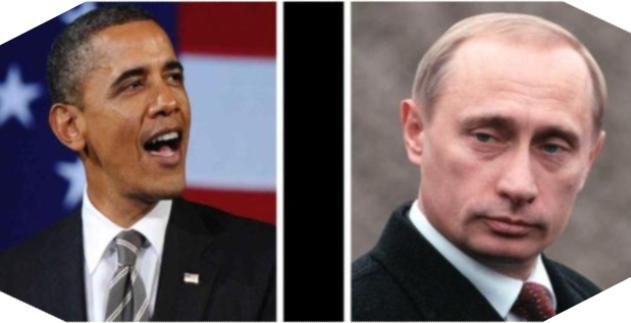Are we sleepwalking our way to a new Cold War?
 Ominous clouds are gathering on the horizon, threatening once again international peace and security. The escalation of the fighting in East Ukraine has seen the downing of MH17 and a serious humanitarian crisis with Washington and Moscow on opposing sides of the conflict. this is the latest in a long series of events that have deeply soured Russian-American relations.
Ominous clouds are gathering on the horizon, threatening once again international peace and security. The escalation of the fighting in East Ukraine has seen the downing of MH17 and a serious humanitarian crisis with Washington and Moscow on opposing sides of the conflict. this is the latest in a long series of events that have deeply soured Russian-American relations.
The incorporation of Crimea into Russia, Moscow’s decision to use force in Georgia in 2008 and its support for the independence of the two breakaway regions of Abkhazia and South Ossetia are part of the same dynamic.
The conduct of Russian governments since the end of the Cold War has at times been coercive and often clumsy both at home and abroad. But the United States has also much to answer for. For the best part of 25 years its foreign policy has been unashamedly triumphalist.
In his 1992 State of the Union address Bush declared: “By the grace of God, America won the Cold War.” Since then we have seen NATO’s bombing of Serbia without UN Security Council approval; US withdrawal from the Anti-Ballistic Missile Treaty, NATO’s steady expansion eastwards; the US invasion of Iraq in defiance of UN opposition; overt support for the colour revolutions on Russia’s doorstep (Ukraine, Georgia, Kyrgyzstan); the Magnitsky Act passed by the US Congress, singling out Russia for human rights violations; and now steadily expanding sanctions against Russia and renewed efforts to ramp up military deployments and joint exercises in Eastern Europe.
Obama’s attempt early in his presidency to ‘reset’ the relationship with Russia has yielded little, except for the limited New START Treaty and modest cooperation on a few regional issues. Western military intervention in Libya dealt another blow to the already fractured relationship, and has exacerbated the humanitarian tragedy in Syria.
Are we seeing the emergence of a new Cold War? Though this time round the ideological trappings are less conspicuous, the underlying structure of the emerging conflict is remarkably similar. The transatlantic alliance is once again seeking to contain and erode Russian power and influence (this time reaching much closer to Russian borders). Simultaneously, under the guise of Obama’s ‘pivot to Asia’, another set of alliance arrangements is trying to thwart China’s rise.
Yet, there is much that is different. Russia is reasserting itself after almost two decades of decline, China's rise is virtually irreversible, and other centres of influence are emerging, notably Brazil, India and Iran. And all of this against a backdrop of failed and costly western military interventions in Iraq, Afghanistan and Africa and proxy wars (not least in Syria) - which have unleashed demons that may take decades to tame.
It is time, then, for small and middle powers that aspire to good international citizenship – some aligned, others not – to take a different path. They have the crucial task of keeping alive the promise of inter-cvilizational dialogue in what is now a multi-centric world, while pointing to the perils of unilateralist impulses and interventions. Equally, those that hold leadership positions in multilateral institutions have a responsibility to call great powers to account, and help create new spaces where the saner voices of civil society can make themselves heard.
A map highlighting NAO's recent expansion can be viewed here
Leave a comment
You can leave feedback for Joseph Camilleri here.
